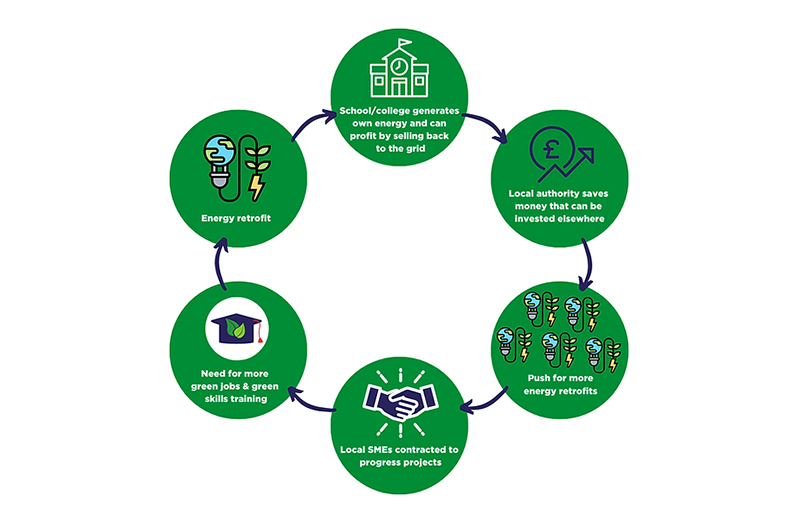DAY by day, we’re visually seeing and even experiencing the effects of climate change. It’s not a myth or conceptual idea; it’s real, and every country has its own challenges and problems because of it. Don’t believe me? Look for old pictures of Guyana’s coastlines and you’ll see the drastic difference when comparing it to the current ones. Ever noticed old structures of what used to be old seawalls in Guyana? Or, have you noticed the additional heightened structures that were made to the Kingston seawalls? These weren’t made by accident. They were made because our coastlines are below sea levels and unfortunately, every year, our oceans increase their volume by 0.13 inches. That’s one of our country’s many struggles with climate change and like many other countries worldwide, we’re desperately looking for solutions to help.
The term “Green Skills” might be unfamiliar to many in terms of its use in language. Nonetheless, what that term symbolises has been put into practice by many people worldwide. Green skills are the abilities, attitudes and understanding needed to develop and live in a sustainable society with efficient resources. If we are to change how we utilise new sustainable resources, we will need specific skills on how to apply such. There is usually a structural change when this happens in economies. This creates “green jobs” or alters existing jobs by fitting greener solutions into play. It’s also important to note that there’s a difference between “green skills” and “green jobs”. Green jobs are career-centred, specialised roles that are dedicated to improving the environmental outcomes around us. There needs to be some sort of revision and restructuring on all employment levels.
 A low-carbon, “green” economy is a must in this day and age. The Guyanese workforce ought to be trained in the specifics required to do their part essentially. If we lack these necessary skills, obviously we will be unable to develop and support a sustainable economy. The idea of a green economy transition will be dragged out. This can even cause structural unemployment. As we implement policies and regulations to accommodate a green economy, we should also do the same for our workforce. Green skills aren’t only meant to be environmentally sustainable but also innovative. How can we think and create unique ways to utilise our waste products? This includes Guyanese mechanics learning how to maintain electric vehicles. It includes farmers in the Corentyne using AI technology to reduce waste. It includes Human Resources departments using alternatives to document instead of paper.
A low-carbon, “green” economy is a must in this day and age. The Guyanese workforce ought to be trained in the specifics required to do their part essentially. If we lack these necessary skills, obviously we will be unable to develop and support a sustainable economy. The idea of a green economy transition will be dragged out. This can even cause structural unemployment. As we implement policies and regulations to accommodate a green economy, we should also do the same for our workforce. Green skills aren’t only meant to be environmentally sustainable but also innovative. How can we think and create unique ways to utilise our waste products? This includes Guyanese mechanics learning how to maintain electric vehicles. It includes farmers in the Corentyne using AI technology to reduce waste. It includes Human Resources departments using alternatives to document instead of paper.
Every country has an ideal plan to create a new “green” economy for their citizens—it requires “green skills” to get there. As such, each country will desire different sets of skills based on their ideas of development and the directions the country in question wishes to follow. Only 23% of UK students are aware of “green skills”, according to WSP. With that in mind, it’s an evolving conceptual idea and I’m hopeful that it reaches within the walls of our local classrooms soon so that students can be aware of an important aspect that may be required of them in years to come. Going “green” requires much more from all of us than fancy slogans and community engagement—it’s real work that requires commitment, knowledge and practice. We ought to find ways to allow our human systems to work with Mother Nature, not against it—if we’re hoping to slow down the rate of climate disasters.




.png)









